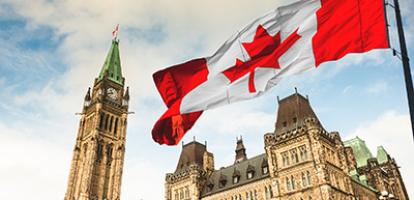While governments struggle to find consensus in the lead-up to the World Trade Organization’s (WTO) critical ministerial conference (MC12) in November, there is a highly significant global development that won’t even be touched on at the meeting: the spread of trade embargoes and economic sanctions.
Used mostly by Western governments, these tools are aimed at combatting terrorism, preventing the spread of weapons of mass destruction, penalizing human rights abuses and environmental degradation, fighting drug trafficking and other actions by unsavoury foreign governments, companies and individuals.
In today’s fraught and increasingly fractured world order, with reduced efficacy of multilaterally-agreed rules, unilateral sanctions and embargoes have become enormously powerful state weapons, mostly on the part of Western governments. In the last couple of decades, they have proliferated and been increasingly deployed outside the authorization of intergovernmental organizations – and hence why the topic will not be on the table at MC12.
Compare today’s unilateral approach with the mostly consensus-based trend in the previous century. Following the Second World War, sanctions were deployed but in relatively few cases and mostly by way of collective action – for example against the apartheid regime in South Africa in the 1980s and against terrorist organizations after 9/11 as ordered by the UN Security Council.
As with many trends, the emergence of sanctions as geopolitical weaponry has been led by the United States, often on the basis of national security interests but also in response to human rights abuses. The Magnitsky sanctions applied for human rights violations against individuals in Russia, for example, was initiated by the U.S. but followed by Western allies, including Canada and a number of E.U. countries. Another illustration is the imposition by many Western governments of civil and even criminal penalties for companies sourcing goods in regions in the Xinjiang region of China, where human rights are systematically being violated as well.
Today, trade embargoes and economic sanctions don’t just apply to manufactured goods like oil or weapons, but target technology transfers, intellectual property, bank transactions and financial services involving foreign places and persons. American leadership with regard to sanctions has been made enormously potent by the ability of the U.S. government to freeze foreign assets in American financial institutions and to deny sanctioned countries and persons access to U.S. capital markets.
Sanctions carry important political messages as well, often having indirect effect in correcting unacceptable behaviour through moral pressure beyond their direct legal and economic impacts.
In terms of their permissibility under international law, there’s an exclusion in the WTO Agreement that allows for unilateral measures taken for national security or human rights purposes. While it isn’t clear how extensive those exemptions are, use of sanctions has never been litigated at the WTO and a trade challenge wouldn’t succeed anyway given the rather permissive wording of those exclusions.
Some commentators question whether sanctions are truly effective in curtailing foreign state or individual actions. Others have analyzed them differently. According to a June 2021 policy brief by the Peterson Institute in Washington, “The effectiveness of U.S. sanctions, even when imposed unilaterally, is enhanced by their application not only to those targeted but also to their customers, financiers, insurers, and shippers abroad. This extraterritorial application of U.S. sanctions compounds the pain inflicted on those targeted.”
The geopolitical message is that unilateral sanctions and embargoes are now, and will continue to be, a driving force in international relations and business activities. Immune to multilateral disciplines, they’ve emerged as indelible factors in the modern era. Growing destabilization from Afghanistan to Venezuela means that Canada, the U.S. and other allies will continue to target more cross-border transactions. Companies doing international business may discover this too late and at their peril.
Lawrence Herman is a Former Canadian Diplomat, an International Legal Counsel at Herman & Associates, and a Senior Fellow of the C.D. Howe Institute.





